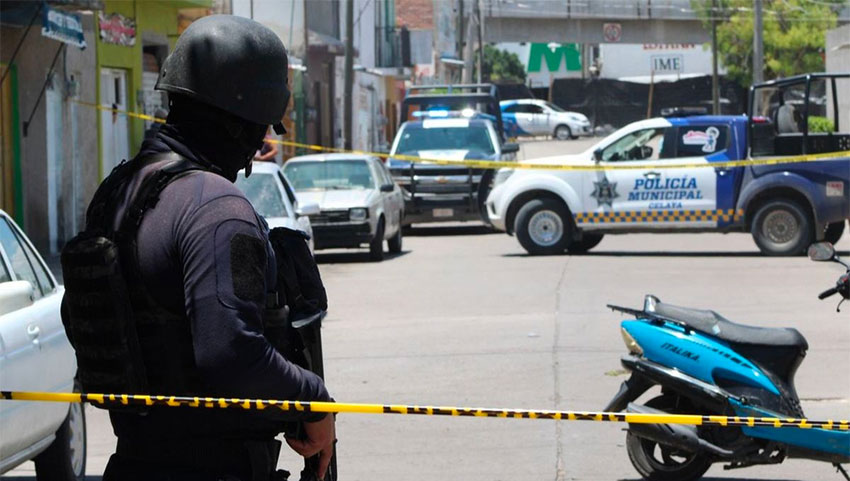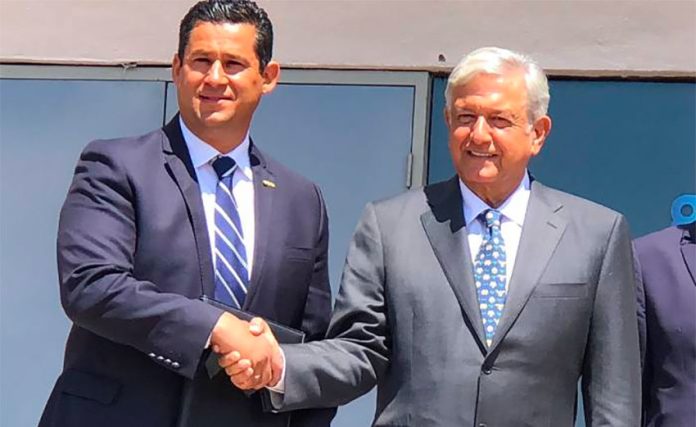President López Obrador said Wednesday that the governor of Guanajuato has agreed to set aside his differences with the federal government and work with it to combat insecurity in the state, Mexico’s most violent.
As a result, National Action Party Governor Diego Sinhué Rodríguez will participate in daily federal government security meetings, something that he has previously refused to do.
Speaking in Guanajuato city at his regular morning news conference, López Obrador praised the governor for his change of heart but also took a thinly-veiled swipe at him.
“We can’t be self-indulgent, gloat over our positions when they’re not the best for the benefit of the community. … That we’re all now moving ahead together is a sign of great responsibility from the governor,” he said.
The federal and Guanajuato governments will thus begin a new chapter in their relationship, López Obrador said.

“A joint [security] strategy is being applied that is led by the governor, which in essence means working [together] every day and daily meetings,” he said.
For his part, Rodríguez, who has previously criticized the government for freeing suspected gangsters and cutting funding for municipal police, said it was clear that better security results could be achieved by working in conjunction with federal authorities.
“In Guanajuato, we’re sure that the presence of the president shows his legitimate concern about security. Beyond our differences is a greater good, which is peace for the residents of Guanajuato,” he said.
Rodríguez said his government is willing to collaborate extensively with federal authorities to combat criminal groups that operate in the state, among which are the feuding Santa Rosa de Lima and Jalisco New Generation cartels.
“We’re more united than ever. We will move ahead accompanied by the federal government,” he said. “I hope to return peace and tranquility [to Guanajuato] shortly.”
At the same press conference, National Defense Minister Luis Cresencio Sandoval said the incidence of crimes in Guanajuato is generally trending down with one notable exception – homicides.
Small-scale drug trafficking, burglaries, rape, extortion, kidnappings and vehicle theft are all on the wane, he said, while weapons seizures are up.
However, the army chief acknowledged that Guanajuato has recorded more homicides than any other state since the federal government took office in December 2018 – a total of 4,422.
Sandoval said the highest numbers of murders have occurred in the municipalities of León, Celaya, Irapuato, Salamanca and Pénjamo. Many of the homicides are believed to be linked to the turf war between the Santa Rosa de Lima Cartel and the Jalisco New Generation Cartel, which are vying for control of drug trafficking and fuel theft in Guanajuato.
To combat organized crime, security force numbers have been bolstered, Sandoval said, explaining that almost 14,000 state and municipal police and more than 21,000 members of the armed forces and National Guard are deployed in the state.
López Obrador highlighted that the federal government’s crackdown on fuel theft in Guanajuato has reduced the amount of petroleum stolen from 14,500 barrels per day to just 510 barrels, a 96% drop.
Source: La Jornada (sp), Milenio (sp)
